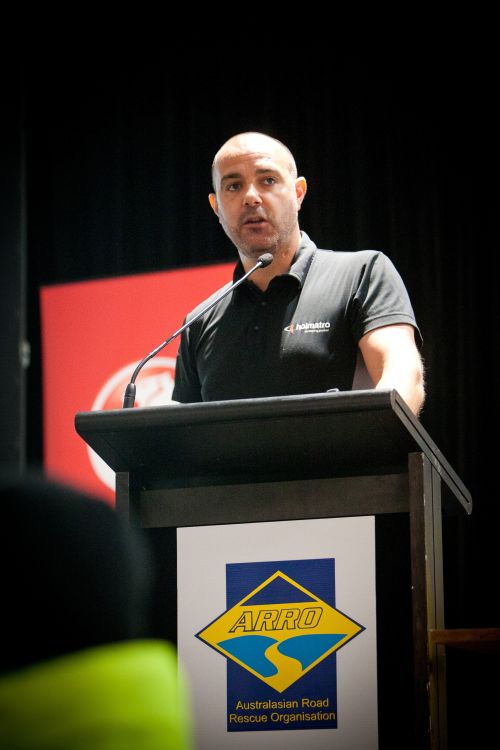Keep an Open Mind
I have spent the last 5 days at the Australasian Road Rescue Challenge in Warragul, near Melbourne, Australia. As with every competition of this kind, it's a meeting of enthusiastic, passionate people who are devoted to the art of making a difference: they want to improve in an effort to save lives. In order to do this (both at the challenge and out on the road) rescuers must have the widest range of options available to them in terms of tools, skills and techniques. As this was a learning event it is vital that, as well as adhering to their own current procedures, they consider other concepts and techniques.
New information
We should all keep one eye on the future and be aware of the latest technical innovations and medical research, which will inform us how they develop in the coming years. Like anything else, how we perform rescue changes rapidly (especially medical considerations) and having access to new information is important. In order to do this we may have to consider future options that will take us out of our comfort zone. This often means looking at how rescue is performed in other areas of the world and learning from them. My job gives me a good insight and a genuine global view. This allows me to pass on information and highlight differences that can be discussed as a basis for development in other regions.
New ideas enable progress
At the Australasian Rescue Challenge I had the opportunity to talk to rescuers about current developments, such as the research that has led to the phasing out of the use of cervical collars in some parts of the world (for certain patients). Another development is the consideration of additional extrication options in addition to the common practice of A and B plans. These issues are a move away from current standard practice in Australia and promoted a lot of discussion. I'm glad to say that most rescuers, when faced with new information, have a very open mind, which is very important. In my opinion, immediate disregard of new ideas and possibilities inhibits progress and limits progression for individuals and organizations.

Keep an open mind
So, when you are faced with new ideas and concepts that are not the norm, what is your reaction? Do you consider the benefits or possible effects on you or your organization or do you immediately discount them and allow the status quo to remain? Discounting a technique or concept because it is not what you currently practice could mean that you lose the opportunity to push the boundaries and make procedures safer, easier, quicker and therefore more efficient and casualty focused. When I am faced with new information I always embrace the opportunity to learn. I consider my current view and decide if I can change or adapt my approach in an effort to improve. I simply never pass up the opportunity to listen to the opinion of others.
Keeping an open mind makes us more effective rescuers. So let's keep learning from each other by sharing new information, new procedures and best practices.
As always I welcome your feedback.
Ian Dunbar